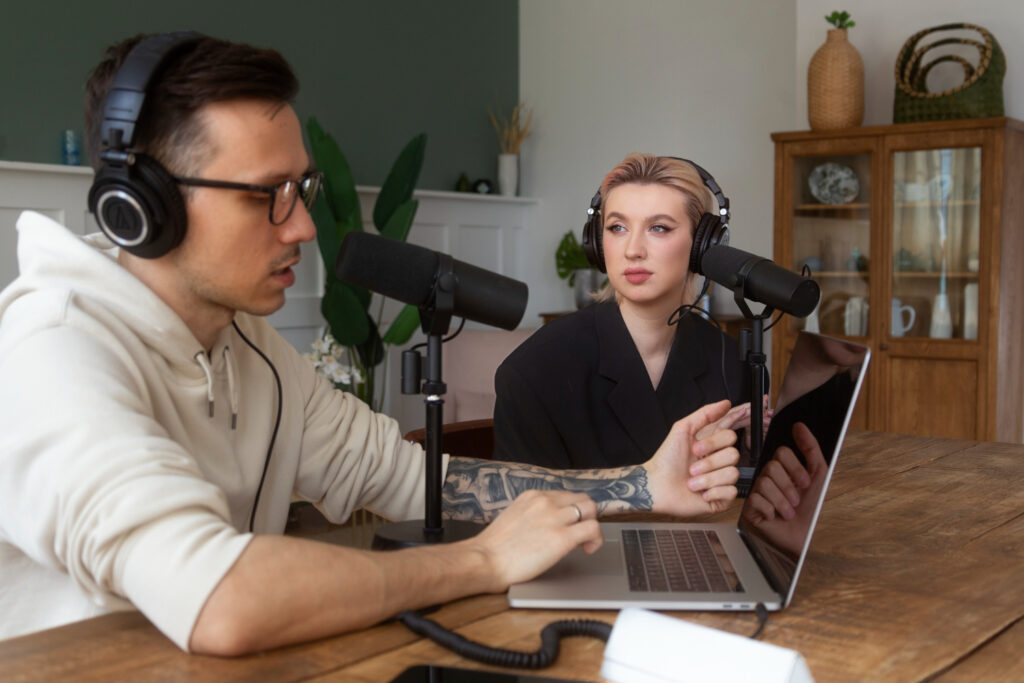
About IWB Podcast
Ignorance Was Bliss, or the IWB Podcast, sounds somewhat like a silent journal that is abruptly read out loud in a busy café. It is incredibly powerful at fostering connection, intensely intimate, and even unnerving. This show leans into imperfection, recording the uncomfortable pauses, the raw realities, and the sighs of folks who dare to tell their tales, in contrast to most podcasts that are based on polished soundtracks and marketing efforts. The host, Kate Wallinga, doesn’t hide behind her act. Rather, she weaves conversations that are incredibly clear yet nuanced by drawing on her actual experiences and psychology expertise.
Kate has created something that is not just far better than formulaic programs but also incredibly inventive by prioritizing dialogue over spectacle. Her podcast feels like a raw letter that was sent at midnight in a society that is overloaded with entertainment. With eerie serenity, it questions whether listeners are certain they really want to know. That question, which has been asked repeatedly, serves as the foundation for a project that has already produced over 500 episodes since 2018, demonstrating the power of honesty even in noisy digital environments.
The approach of the About IWB Podcast is what distinguishes it from its topic, which is how people become who they are. The program successfully humanizes complexity through discussions with visitors that include academics, artists, and trauma survivors. The subject matter is extremely diverse, spanning memoir, psychology, crime, and resilience, but it is always connected to the identity question. The audience’s own deepest fears and aspirations are reflected in the guests, who are frequently unpolished but incredibly real. Listeners frequently remark that it greatly lessens their own stress to hear strangers share their stories.
IWB’s ascent is also indicative of a broader societal change. Prominent figures like Selena Gomez, Demi Lovato, and Prince Harry have pushed the limits of what society views as appropriate public discourse around trauma and mental health in recent years. Though it is delivered with less celebrity glitz and more kitchen-table intimacy, Kate’s strategy is quite similar. She taps into the same emotional current that has made podcasts like Armchair Expert and memoirs by Roxane Gay so powerful by emphasizing unvarnished honesty. This is not merely a story; it is a multifaceted reflection of our common humanity.
It is impossible to overstate the impact of IWB on society. During the epidemic, remote work and isolation increased personal challenges, leaving many people seeking validation outside regular support structures. For numerous listeners, IWB provided that anchor. By showing life as messy yet significant, Kate gave something uniquely beneficial: the idea that even when shattered, individuals remain connected via narrative. Because of its function, the podcast is now both an informal therapeutic tool and a source of entertainment. The distinction between therapy and podcasting has become more hazy, and IWB shows how audio interactions can have a significant emotional impact.
Consistency contributes to its durability. Kate has continued to consistently release episodes in spite of health issues and the weariness of independent production. This perseverance has significantly increased the show’s trustworthiness with listeners who frequently switch between popular podcasts. The durability demonstrates that viewers want consistency as much as novelty, with a recognizable voice returning week after week with unvarnished candor. IWB has thus evolved into a kind of reliable friend who listens more than they speak, never sugarcoats, but constantly shows concern.
Surprisingly, IWB prospers without the burdensome apparatus of corporate advertising. Even while its audience is smaller than that of celebrity-driven podcasts, it shows that loyalty can still be developed through genuineness. The main driver has been word of mouth. Episodes are shared by fans because they feel necessary, not because they are sensational. This grassroots expansion is similar to how Serial first gained popularity—not through lavish marketing, but rather out of a sincere desire to tell a compelling tale. Similarly, IWB has subtly challenged preconceived notions about the types of shows that are successful.
Kate has also brought attention to more general industry problems with her frank interviews. For a long time, voices with access to networks, studios, and funding have dominated the podcasting industry. She has created room for others by demonstrating that unpolished, autonomous initiatives may garner notice. The message is very clear: honesty is more important than perfection if you want to be noticed. Kate is in line with a new generation of digital creators that value connection over polish, or meaning over numbers.
The About IWB Podcast serves as both a lighthouse and a mirror in the backdrop of society’s evolving relationship with mental health. It helps listeners understand while also reflecting the difficulty of living with trauma. Because of its dual function, it has been especially inventive in bridging the gap between individual narrative and group empathy. Podcasts like IWB are changing audio media in the same way that memoirs changed literature in earlier decades.
IWB’s trend indicates that its influence will only grow in the future. Kate’s voice will continue to be remarkably relevant in the years to come as consumers expect digital producers to be more authentic. The podcast has already shown that tales can be told, no matter how unvarnished or complex, and that quiet is not the only choice. And when courageously narrated, those tales not only affirm the storyteller but also change the listener.
Ignorance Was Bliss is a philosophy that questions our preconceptions, not merely a title. Almost everything might appear normal until it is analyzed, and then meaning is revealed. The podcast serves as a reminder that life is rarely straightforward but is always worth telling by collecting tales that would otherwise go untold. IWB is more than just music to listeners who are dispersed across nations, demographics, and difficulties; it is a means of connection, affirmation, and evidence that humanity, in all its flaws, is still incredibly beautiful.
| Category | Details |
|---|---|
| Podcast Name | Ignorance Was Bliss (IWB) |
| Host | Kate Wallinga |
| Main Theme | How we become who we are—psychology, life stories, true crime |
| Years Active | 2018 – Present |
| Episodes | 500+ |
| Style | Conversational, unfiltered, deeply personal |
| Website | iwbpodcast.com |
| Instagram Followers | 1,100+ |
| Facebook Followers | 780+ |
| Apple Podcast Rating | 4.1 out of 5 (19 Reviews) |
Latest
Top True Crime Podcasts
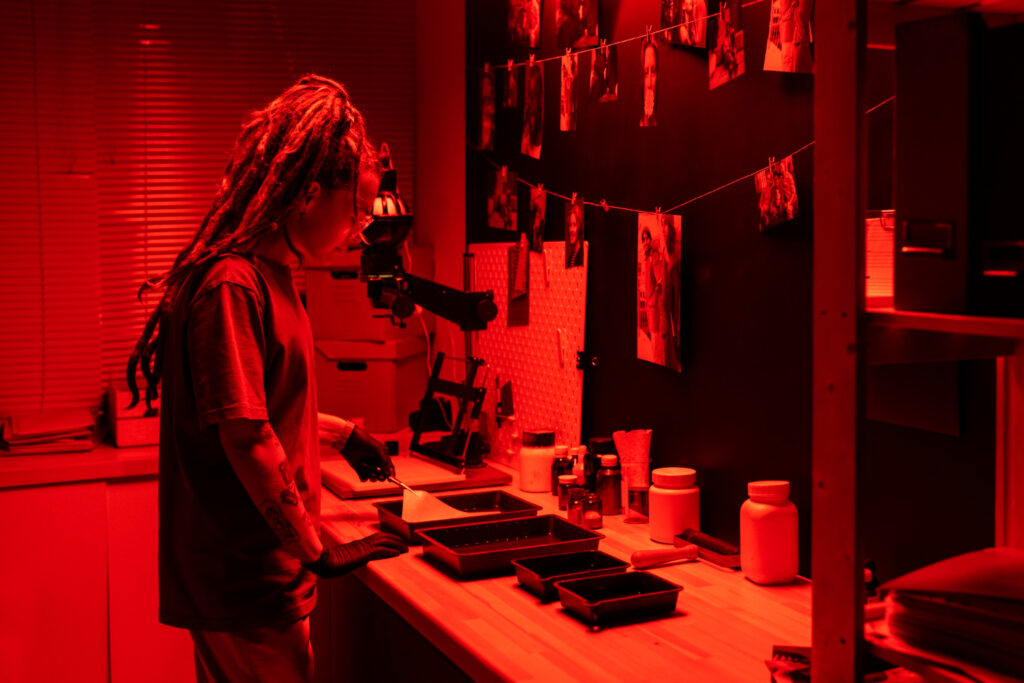
With an intensity that is both oddly personal and incredibly powerful, true crime podcasts have become cultural mainstays. The disconcerting surprise is that these stories are frighteningly real, and people frequently describe their listening habits as addictive, similar to binge-watching a favorite series. Podcasts convey the voices of victims, reporters, and investigators right into your ear, almost as if they were whispering truths across a silent room, in contrast to television dramas that exaggerate events with music and performers.
What was before seen as fringe now tops streaming charts, demonstrating the genre’s tremendous expansion. Shows like Serial and Crime Junkie have become well-known because they captivate viewers with incredibly clear storylines that transform complicated situations into compelling episodes. Celebrities themselves freely acknowledge that they are enthralled with these tales; Reese Witherspoon has even gone so far as to create film adaptations of popular podcasts, such as Dirty John, and Kim Kardashian has linked her interest in true crime to her crusade against wrongful convictions. There has never been a more clear parallel between campaigning and entertainment and a cultural revolution.
The distinctive quality of true crime podcasts is the variety of their styles. By fusing comedy and horror, My Favorite Murder completely upended the genre and made discussions about tragedy seem more approachable without sacrificing their seriousness. This was especially creative and demonstrated that people were prepared for nontraditional narratives. The anonymous narrator of Casefile True Crime, on the other hand, provides an incredibly powerful substitute, producing incredibly effective, meticulous narratives that are both clinical and incredibly relatable. Morbid manages to lighten the saddest tragedies while maintaining their emotional depth by striking a balance between wit and reverence.
Listening to these podcasts became as natural as making coffee in the morning during the pandemic, when people were cooped up indoors for long periods of time. In addition to being amusing, they were especially helpful in providing company when people were alone. Many found that the weekly series’ consistent beat gave them structure during a period when the days blended together. The narrators’ voices seemed to take the place of well-known acquaintances, remarkably clear in their narrative and markedly enhanced by the closeness of headphones.
The impact of true crime podcasts on society has been unexpected. Once-cold-storied cases have been resurrected thanks to the combined efforts of listeners and amateur investigators who go over minutiae and frequently find connections that were missed. Professional journalism and public curiosity are now much closer thanks to this grassroots involvement. When its investigation into the Curtis Flowers case exposed prosecutorial misconduct and ultimately influenced actual legal outcomes, In The Dark became a prime example. These results demonstrate that storytelling has the power to significantly alter the course of justice and is not only a kind of entertainment.
It’s also important to acknowledge the genre’s global appeal. While West Cork in Ireland enthralled listeners worldwide with its remarkably enduring focus on a decades-old murder mystery, Mordlust and Verbrechen in Germany have fostered audiences eager for local crime narratives. Crime stories are immensely adaptable due to their universality; despite cultural differences, the themes of justice, morality, and fear are remarkably consistent. This flexibility explains why new productions continue to appear and attract devoted audiences nearly immediately.
It is important to consider the ways in which these podcasts relate to more general cultural trends. Because true crime is so effective at attracting loyal listeners, streaming services are making significant investments in the genre. Like serialized television in previous decades, once hooked, viewers return week after week. Podcasts are especially creative storytelling mediums because of their surprisingly low production costs when compared to documentaries. This explains the fierce competition between Apple and Spotify for exclusive partnerships with well-known shows.
Podcasts about true crime also show how society’s perception of terror is changing. In the past, people avoided talking about crime; today, listeners eagerly absorb stories about violence, deceit, and fraud. The causes differ. Many listeners find solace in stories that end with justice being done, while others are drawn to psychological stories or cautionary tales. As a storytelling formula, dread and resolve work incredibly well together to leave audiences feeling both soothed and disturbed at the same time.
Another depth is added by celebrities. The cultural influence of true crime podcasts is demonstrated when well-known individuals like Mindy Kaling or Billie Eilish casually mention them in interviews. Today, celebrity endorsements increase the legitimacy of true crime listening habits, just like Oprah did when she established book clubs. These endorsements are especially helpful since they make podcasts seem more commonplace than specialized oddities.
The genre is set to change in the future. Podcasts are probably going to concentrate more on systemic flaws, unreported tales from underrepresented groups, and financial crimes that offer very creative insights into the structure of society in the years to come. The genre may do something extraordinarily powerful by going beyond murder and kidnapping: employing crime storylines to examine socioeconomic injustices, corruption, and resiliency. In addition to increasing the audience, this extension would strengthen the genre’s influence as a consciousness-raising instrument.
The emotional appeal of the best true crime podcasts is what makes them so enduring. They blend storytelling with urgency, providing an experience that seems more intimate than most media. Whether it is Sarah Koenig taking listeners through the mysteries of Serial or Ashley Flowers describing a case with empathy in Crime Junkie, the format attracts attention in a way that television sometimes tries to mimic. It is storytelling at its purest: a voice, a story, and the haunting awareness that it genuinely happened.
Ultimately, best true crime podcasts exist as cultural artifacts of our time. They show how individuals use tales of justice, crime, and humanity to find connections. They have a remarkable ability to turn personal suffering into universal empathy that cuts across boundaries, social classes, and generations. True crime podcasts now record and change those discussions for the digital era, much how novels historically influenced how cultures understood morality.
| Podcast Name | Hosts / Creators | Distinctive Style | Platform / Link |
|---|---|---|---|
| Crime Junkie | Ashley Flowers & Brit Prawat | Weekly cases, highly engaging narration | crimejunkiepodcast.com |
| Serial | Sarah Koenig | Groundbreaking serialized storytelling, deep investigations | serialpodcast.org |
| Morbid | Alaina & Ash | Humor blended with chilling cases | morbidpodcast.com |
| My Favorite Murder | Karen Kilgariff & Georgia Hardstark | Comedic storytelling mixed with murder cases | myfavoritemurder.com |
| Casefile True Crime | Anonymous Narrator | Exceptionally detailed, fact-driven research | casefilepodcast.com |
| Bear Brook | NHPR Investigative Team | Longform reporting, DNA-driven breakthroughs | bearbrookpodcast.org |
| In The Dark | Madeleine Baran (APM Reports) | Investigative journalism, systemic justice issues | apmreports.org/indark |
| Rotten Mango | Stephanie Soo | Pop-culture spin, emotional delivery | spotify.com/rottenmango |
| West Cork | Jennifer Forde & Sam Bungey | Irish cold-case storytelling | audible.co.uk/westcork |
| Anatomy of Murder | Anna-Sigga Nicolazzi & Scott Weinberger | Prosecutorial perspective with investigative detail | anatomyofmurder.com |
What Is The #1 True Crime Podcast?
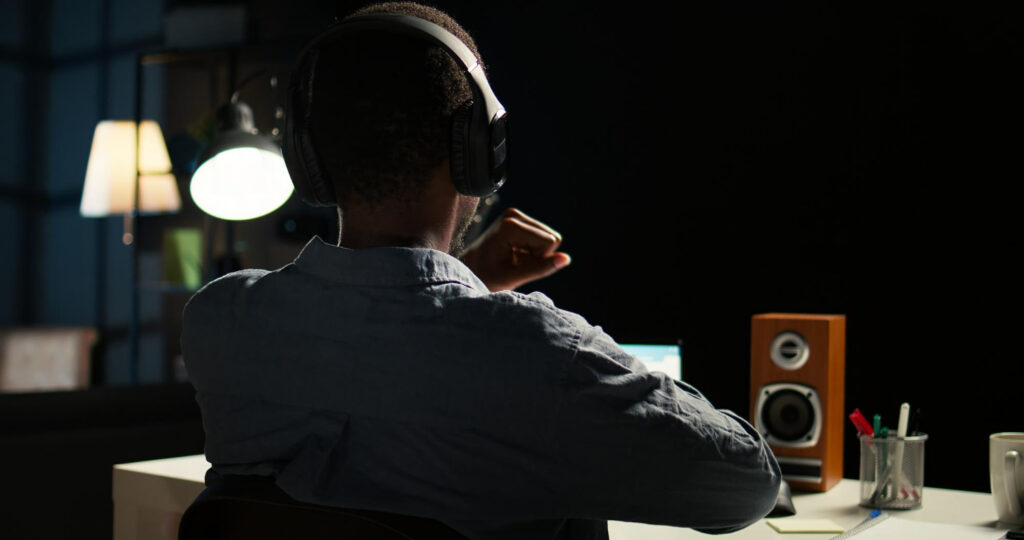
For audiences who gauge popularity based on cultural significance as well as downloads, the question of which true crime podcast is the best remains fascinating. The response varies continuously based on whether the standard is influence, narrative quality, or charts. Crime Junkie’s weekly storytelling is so effective that it consistently tops streaming platforms, including Spotify and Apple. Despite this, Serial continues to hold unparalleled prestige ten years after its premiere, with its serialized examination of Adnan Syed eerily resembling a cultural turning point that permanently altered the medium.
These shows compel attention in conflicting ways, which is what makes this discussion so fascinating. Crime Junkie provides listeners with a very clear structure that makes it feel as though a trusted friend is guiding them through each case. It is conversational and simple to follow. But Serial is meticulously covered, deftly combining layers of evidence, testimony, and skepticism to create a story that changed how the general public views journalism. Although they have distinct weights, each have shown remarkable success in reaching large audiences.
With its anonymous host, Casefile provides an alternative viewpoint. Ironically, its power lies in its lack of personality, which lets the listener focus just on the facts. With episodes that are noticeably enhanced by careful attention to detail, this straightforward approach has shown itself to be incredibly dependable over the years. Its accomplishment demonstrates that, in cases where the research is convincing, charm is not required. With its seamless transition of decades of investigative credibility into a portable format, Dateline NBC exemplifies legacy media adjusting to the needs of people who prefer conventional journalism in podcast form.
How individuals consume crime narratives is revealed by their fixation with rankings. Some people define “#1” as the emotional closeness of Crime Junkie. For others, Serial’s investigative rigor is still unrivaled. The selection frequently reflects individual preferences, whether listeners are looking for fact-driven analysis, insightful journalism, or companionship. This variance makes it very evident that there might never be a single winner—only the programs that are the best in their respective categories.
The popularity of true crime podcasts surged during the pandemic as individuals looked for routine and distraction during these unsettling times. By bringing captivating voices into silent houses, they offered structure in addition to enjoyment. During this time, there was a major decrease in the use of television crime dramas because audio was more portable and could be adjusted to different lifestyles. Especially creative, the change has solidified podcasts as a mainstay of contemporary media consumption.
The significance of these shows also extends beyond entertainment. There were actual legal repercussions after In The Dark revealed prosecutorial malpractice that had dogged cases for decades. The disappearance of Kristin Smart, the subject of Your Own Backyard, sparked a new inquiry and finally led to arrests. These instances show how podcasts can be incredibly powerful instruments of accountability when they are reported with care. They show that narratives can become a force for justice if they are incredibly persistent and unambiguous.
Celebrity culture has influenced the discussion as well. Kim Kardashian has openly lauded true crime podcasts and connected them to her support of criminal justice. Podcast stories have been turned into streaming successes by Reese Witherspoon, and Billie Eilish has acknowledged binge-watching them while on tour. By bringing the genre closer to the general public, these endorsements help it become less of a niche interest and more of a cultural mainstay.
The picture is richer on a global scale. German podcasts, such as Mordlust and Verbrechen, draw loyal listeners and present local viewpoints with a very similar impact to those of their American counterparts. By capturing the unadulterated ambiance of a rural cold case on headphones worldwide, West Cork enthralled listeners throughout Ireland. These programs demonstrate how remarkably adaptable the genre is, preserving its emotional appeal while blending in with cultural quirks.
A deeper issue is highlighted by the fixation on identifying a single top podcast: listeners’ need for clarity in an ambiguity-based genre. Despite the untidy, unfinished, and frequently sad nature of crime stories, ranking gives them structure. Ironically, the argument itself reflects the cases that these shows analyze, looking for solutions in situations where clarity is difficult to find. A component of the genre’s timeless appeal is that tension.
The genre is expected to grow into new and uncharted territories in the future. It is anticipated that in the years to come, true crime podcasts would focus on crimes targeting underrepresented populations, social injustices, and financial frauds. By making such changes, the catalog will become more varied and the shows will become more inventive in terms of their societal relevance. Stories that address modern concerns—such as cybercrime, stalking, and institutional failure—are becoming more and more popular, and producers are already adapting with formats that are noticeably quicker, crisper, and more participatory.
| Podcast Name | Hosts / Creators | Notable Strengths | Website / Platform |
|---|---|---|---|
| Crime Junkie | Ashley Flowers & Brit Prawat | Weekly cases, conversational, highly engaging, chart-topping | crimejunkiepodcast.com |
| Serial | Sarah Koenig | Groundbreaking serialized format, investigative depth | serialpodcast.org |
| Dateline NBC | NBC News Journalists | Adapted TV format, extremely reliable reporting | nbcnews.com/dateline |
| Casefile | Anonymous Narrator | Exceptionally clear, fact-driven, particularly durable over years | casefilepodcast.com |
| In The Dark | Madeleine Baran | Systemic analysis, award-winning journalism, notably improved cases | apmreports.org/indark |
Podcast History, How They Started
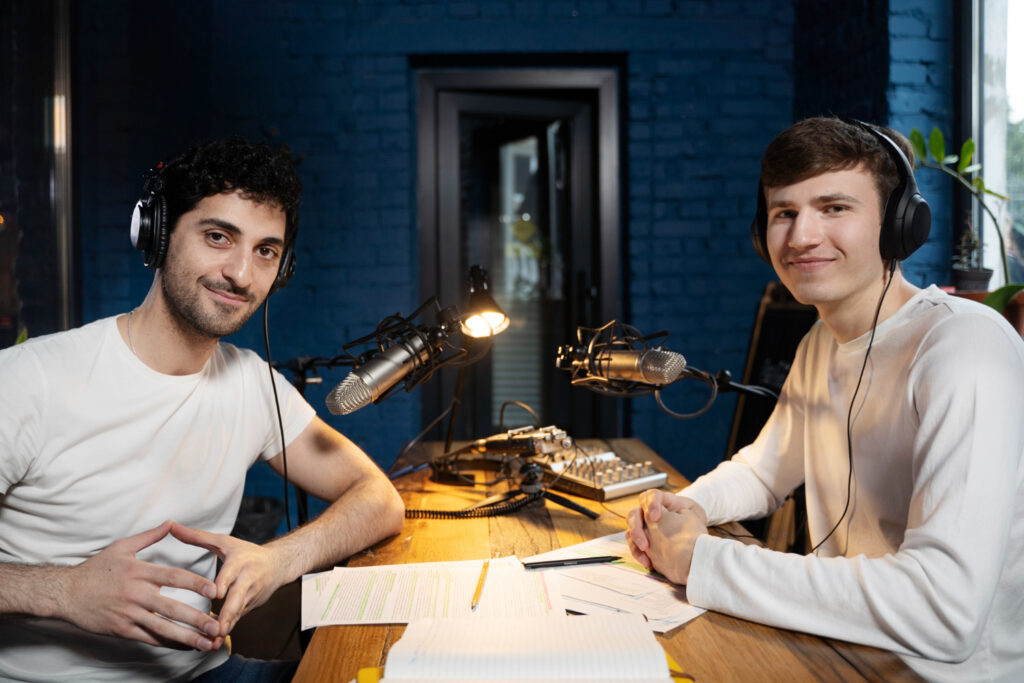
Similar to how blogs once upended print media, podcasts are an odd experiment that arose from the nexus of creativity and technology. Dave Winer unwittingly sowed the seeds of a cultural revolution in 2003 when he created audio RSS feeds. Adam Curry, a former MTV VJ with a knack for entrepreneurship, saw its potential and worked with Winer to develop iPodder, a program that automatically sent music to Apple’s iPods. This collaboration was incredibly successful in laying the groundwork for what we now take for granted as podcasts, a medium that seems as necessary as television did in previous decades.
A brilliant linguistic combination of “iPod” and “broadcast,” the name “podcast” was first used by British journalist Ben Hammersley in The Guardian in 2004. It was incredibly clear, memorable, and sure to stick. By integrating podcasts into iTunes a year later, Apple validated the medium and offered a remarkably robust growth platform. That action was especially helpful since it not only made access easier but also demonstrated that podcasts were now accepted media and not just a niche experiment for nerds. This change was similar to YouTube’s eventual legitimization of video production for a worldwide viewership.
The change did not happen overnight. When podcasting first began, it resembled asynchronous radio, with dispersed fans recording music, commentary, or interviews for small but devoted audiences. Interviews by former New York Times reporter Christopher Lydon demonstrated that audio blogging may be incredibly clear in tone, intellectually stimulating, and extremely effective in distribution. His research, which was boosted by RSS feeds, demonstrated that podcasts may convey important discussions outside of the conventional media timetable.
When “podcast” was awarded the New Oxford American Dictionary’s Word of the Year in 2005, it gained popular awareness. It demonstrated how language itself was adjusting to a new means of communication, which was a symbolic turning point. In addition to drawing big institutions ready to adjust, this medium has significantly increased accessibility for independent voices during the last 20 years. Legacy broadcasters, such as NPR’s This American Life and the BBC’s In Our Time, adopted podcasting, demonstrating its incredibly broad audience.
Then came the 2014 real crime series Serial, which not only enthralled millions of viewers but also greatly diminished doubts about the seriousness of podcasts. In just a few short years, its overwhelming popularity tripled listenership and even had an impact on actual court proceedings. Few developments in contemporary media have had an impact that is so remarkably analogous to that of the early turning points in television. Serial showed that podcasts have the power to transcend background noise and become socially significant, influencing discussions and upending established institutions.
Growth was further increased by the influence of celebrities. Listeners experienced a closeness that was far different from press briefings when Barack Obama and Marc Maron sat down on WTF. Soon after, celebrities like Taylor Swift, Kim Kardashian, and Matthew McConaughey adopted podcasts as more secure and adaptable platforms for communication. When conventional promotional channels vanished during the pandemic, podcasts emerged as incredibly resilient audience-reaching tools. Podcasts provided immensely flexible narrative tools, free from strict rules, for artists, activists, and even CEOs.
Podcast usage has been remarkably unequal but consistently increasing on a global scale. More than half of the population in South Korea, where mobile media is prevalent, listens once a month; this number is growing far more quickly than in most other markets. Mordlust became a national favorite in Germany, and podcasts are becoming a cultural bridge across languages in India, where there are over 57 million listeners. These versions demonstrate how podcasting evolves like a living thing, simplifying processes and fostering human ingenuity in a variety of settings.
There are significant cultural ramifications. In many respects, podcasts brought back the human voice as a reliable tool in a time of excessive visual stimulation. They were especially inventive as political platforms, educational resources, and safe havens for underrepresented groups. Platforms like Spotify and iHeartRadio increased accessibility through strategic alliances, changing distribution strategies and gaining access to billion-dollar advertising markets. At a time when most digital communication feels transactional and compressed, the intimacy of voice—slow, conversational, and incredibly clear—has made room for nuance.
The momentum appears to be unstoppable going ahead. Video-integrated podcasts, which combine the intimacy of audio with visual storytelling, are predicted to take over websites like YouTube in the upcoming years. Although AI will greatly lower technical barriers by offering editing, translation, and even voice synthesis, podcasts will still be fundamentally human. Podcasts are more successful than short-form content that is meant to be consumed quickly because they encourage listeners to stay and participate in depth. In a time when trends are shifting quickly, their endurance makes them incredibly resilient.
| Name | Contribution / Role | Notable Achievement | Reference Website |
|---|---|---|---|
| Dave Winer | Software Developer, RSS Pioneer | Created audio RSS feed enabling podcast distribution | https://en.wikipedia.org/wiki/History_of_podcasting |
| Adam Curry | Former MTV VJ, Podcaster | Co-developed iPodder, promoted early podcasting | https://en.wikipedia.org/wiki/Adam_Curry |
| Ben Hammersley | Journalist, The Guardian | Coined the term “Podcast” in 2004 | https://en.wikipedia.org/wiki/Podcast |
| Christopher Lydon | Journalist, Broadcaster | Released first podcast interviews in 2003 | https://en.wikipedia.org/wiki/Christopher_Lydon |
| Apple / Steve Jobs | Tech Company / CEO | Integrated podcasts into iTunes in 2005 | https://en.wikipedia.org/wiki/Podcast |
Who Made Podcasts Popular
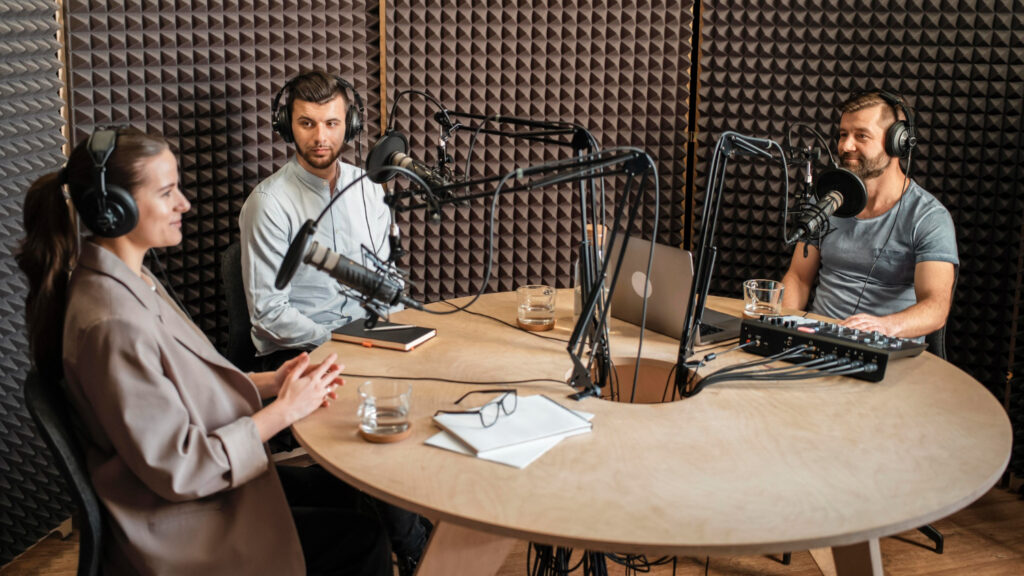
The question of who popularized podcasts is similar to the question of who made movies memorable: it was never a single person, but rather a constellation of institutions, performers, and innovators who collaborated, sometimes on purpose and other times by chance. The technical groundwork was laid by software pioneer Dave Winer and former MTV VJ Adam Curry, who created tools that mechanized audio transmission and gave rise to the iPodder. Their collaboration, in which one wrote the code and the other promoted its possibilities, was remarkably reminiscent of the relationship between engineers and visionaries in previous communication innovations.
Code alone, however, was not enough for cultural adoption. Ben Hammersley accidentally created the term “podcast” in The Guardian in 2004, giving it a very clear and adaptable moniker. The following year, Apple introduced podcasts to iTunes, turning a specialized experiment into a nearly instantaneous habit. The concept of listening to talks on demand was incredibly effective, shockingly cheap, and truly enjoyable when comedian Ricky Gervais’ program shattered download records when it was released through The Guardian in 2005.
In 2005, even President George W. Bush gave weekly speeches via podcast, demonstrating that political leaders understood the format’s importance. The legitimacy of podcasts as more than just casual conversation was greatly enhanced by that presidential embrace, which demonstrated their ability to authoritatively convey national messages. In the meantime, the BBC and NPR converted their already-existing shows into podcasts, offering incredibly dependable production and distribution content. These actions greatly lowered barriers for audiences who were still figuring out how to listen and subscribe.
The second major turning point was the premiere of Serial, which occurred over ten years later. A serialized format that drew viewers in each week with suspenseful cliffhangers and meticulous reporting significantly enhanced Sarah Koenig’s storytelling. In addition to captivating millions of listeners, the podcast had an impact on the court system and rekindled discussions about due process and justice. It was very creative in combining entertainment rhythm with long-form journalism, providing a closeness that was incredibly powerful in influencing public opinion.
The medium was further magnified by celebrity adoption. The memorable appearance of President Barack Obama on Marc Maron’s WTF was a cultural spectacle that showed how deeply podcasts have ingrained themselves into everyday conversation. Joe Rogan turned the format into a corporate empire with his conversational marathon style, landing a $100 million deal with Spotify. His success demonstrated how podcasts had evolved into a very adaptable medium that was simultaneously global, lucrative, and personal. These trajectories were remarkably resilient, demonstrating that podcasts were a media mainstay rather than merely a fad.
Adoption followed distinct patterns on a global scale. While genuine crime predominates in Germany and Scandinavia, more than half of the population in South Korea listens on a monthly basis. The viewership has grown dramatically since the introduction of video podcasts on popular platforms like Spotify and YouTube; according to Bloomberg, over a billion people now listen to podcast-style content each month. Algorithms that suggested shows in addition to music significantly enhanced this change, increasing the efficiency of finding and expanding the audience for independent artists.
The tale of who popularized podcasts is essentially multi-layered: Apple offered the platform, Gervais and Koenig provided appealing material, Rogan expanded its financial potential, Curry and Winer designed the rails, and Hammersley gave it a name. Together, they produced a format that has proven incredibly resilient. Each of these contributions was especially inventive in its day, and they were all remarkably successful in growing the audience.
| Name | Role / Contribution | Achievement / Impact | Reference Website |
|---|---|---|---|
| Adam Curry | Former MTV VJ, Podcaster | Co-developed iPodder, hosted Daily Source Code | https://en.wikipedia.org/wiki/Adam_Curry |
| Dave Winer | Software Developer, RSS Innovator | Created RSS enclosures, enabling podcast distribution | https://en.wikipedia.org/wiki/Dave_Winer |
| Ben Hammersley | Journalist, The Guardian | Coined the term “Podcast” in 2004 | https://en.wikipedia.org/wiki/Podcast |
| Steve Jobs / Apple | Tech Visionary / Company | Added podcast support to iTunes in 2005 | https://en.wikipedia.org/wiki/History_of_podcasting |
| Ricky Gervais | Comedian, Podcaster | Broke download records with The Ricky Gervais Show | https://en.wikipedia.org/wiki/The_Ricky_Gervais_Show |
| Sarah Koenig | Journalist, Host of Serial | Popularized true crime, reshaped podcast culture | https://en.wikipedia.org/wiki/Serial_(podcast) |
